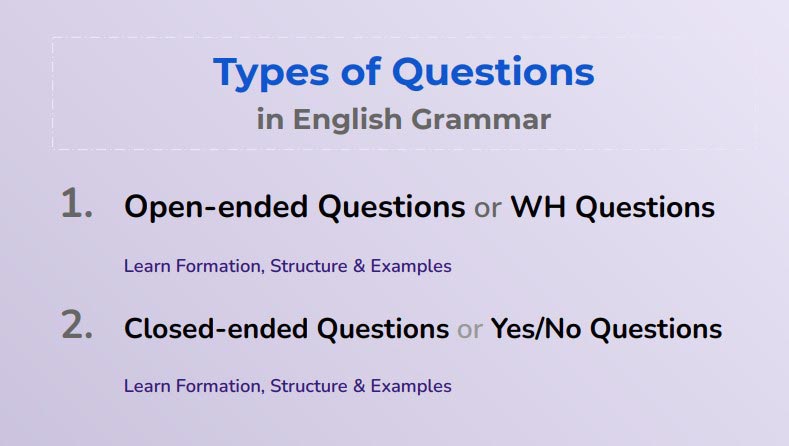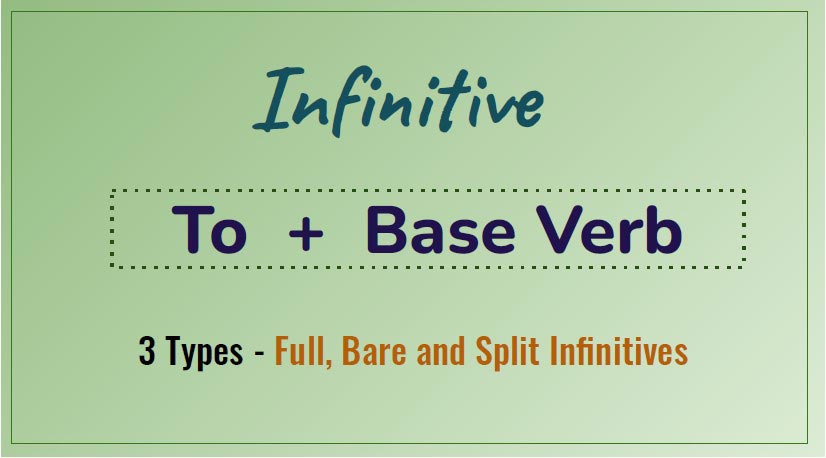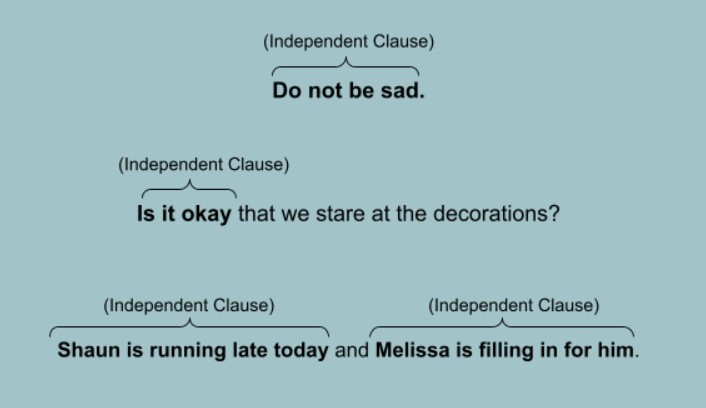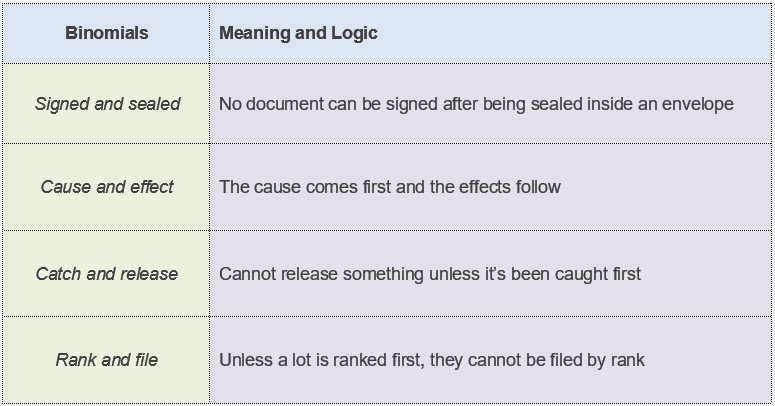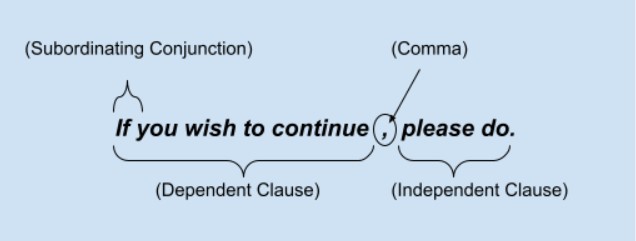Clauses: Definition, Types & Examples
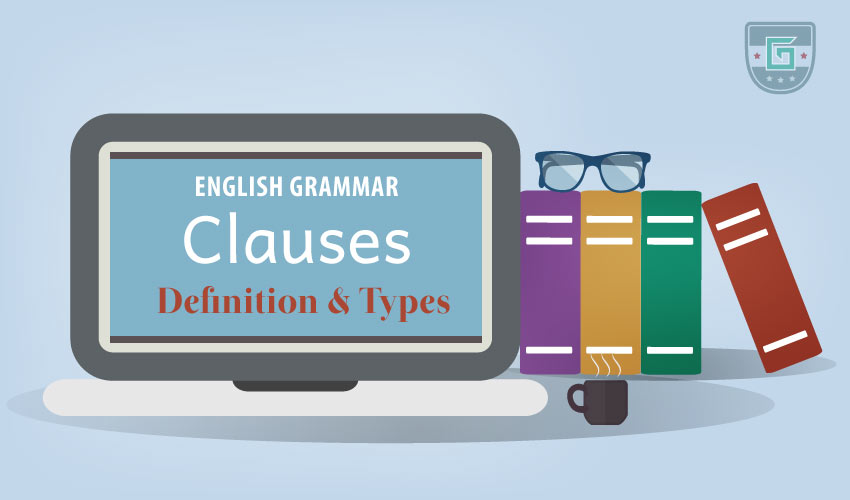
What is a Clause
A clause is comprised of a group of words that include a subject and a finite verb. It contains only one subject and one verb. The subject of a clause can be mentioned or hidden, but the verb must be apparent and distinguishable.
A clause is “a group of words containing a subject and predicate and functioning as a member of a complex or compound sentence. ” – Merriam-Webster
Example:
- I graduated last year. (One clause sentence)
- When I came here, I saw him. (Two clause sentence)
- When I came here, I saw him, and he greeted me. (Three clause sentence)
Types of Clauses
- Independent Clause
- Dependent Clause
- Adjective Clause
- Noun Clause
- Adverbial Clause
- Principal Clause
- Coordinate Clause
- Non-finite Clause
Independent Clause
It functions on its own to make a meaningful sentence and looks much like a regular sentence.
In a sentence two independent clauses can be connected by the coordinators: and, but, so, or, nor, for*, yet*.
Example:
- He is a wise man.
- I like him.
- Can you do it?
- Do it please. (Subject you is hidden)
- I read the whole story.
- I want to buy a phone, but I don’t have enough money. (Two independent clauses)
- He went to London and visited the Lords. (Subject of the second clause is ‘he,' so “he visited the Lords” is an independent clause.)
- Alex smiles whenever he sees her. (One independent clause)
Dependent Clause
It cannot function on its own because it leaves an idea or thought unfinished. It is also called a subordinate clause. These help the independent clauses complete the sentence. Alone, it cannot form a complete sentence.
The subordinators do the work of connecting the dependent clause to another clause to complete the sentence. In each of the dependent clauses, the first word is a subordinator. Subordinators include relative pronouns, subordinating conjunctions, and noun clause markers.
Example:
- When I was dating Daina, I had an accident.
- I know the man who stole the watch.
- He bought a car which was too expensive.
- I know that he cannot do it.
- He does not know where he was born.
- If you don’t eat, I won’t go.
- He is a very talented player though he is out of form.
Dependent Clauses are divided into three types and they are –
1. Adjective Clause
It is a Dependent Clause that modifies a Noun. Basically, Adjective Clauses have similar qualities as Adjectives that are of modifying Nouns and hence the name, Adjective Clause. These are also called Relative Clauses and they usually sit right after the Nouns they modify.
Examples:
- I’m looking for the red book that went missing last week.
- Finn is asking for the shoes which used to belong to his dad.
- You there, who is sitting quietly at the corner, come here and lead the class out.
2. Noun Clause
Dependent Clauses acting as Nouns in sentences are called Noun Clauses or Nominal Clauses. These often start with “how,” “that,” other WH-words (What, Who, Where, When, Why, Which, Whose and Whom), if, whether etc.
Examples:
- I like what I hear.
- You need to express that it’s crossing a line for you.
- He knows how things work around here.
3. Adverbial Clause
By definition, these are Dependent Clauses acting as Adverbs. It means that these clauses have the power to modify Verbs, Adjectives and other Adverbs.
Examples:
- Alice did the dishes till her legs gave up.
- Tina ran to the point of panting vehemently.
- I went through the book at a lightning speed.
Principal Clause
These have a Subject (Noun/Pronoun), Finite Verb and an Object and make full sentences that can stand alone or act as the main part of any Complex or Compound Sentence. Independent and Principal Clauses are functionally the same but named from different perspectives.
Examples:
- I know that boy.
- He can jog every morning.
- Robin fishes like a pro.
Coordinate Clause
Two or more similarly important Independent Clauses joined by Coordinating Conjunctions (and, or, but etc.) in terms of Compound Sentences are called Coordinate Clauses.
Examples:
- I like taking photos and he loves posing for them.
- You prefer flying but she always wants to take a bus.
- We are going to visit Terry or he is coming over.
Non-finite Clause
They contain a Participle or an Infinitive Verb that makes the Subject and Verb evident even though hidden. In terms of a Participle, the Participial Phrase takes place of the Subject or Object of the sentence.
Examples:
- He saw the boy (who was) staring out of the window.
- She is the first person (who is) to enter the office.
- Hearing the fireworks, the children jumped up.
Grammar
Read More
- How to Use "Therefore" in Sentences Avoiding Common Mistakes
- How to Use "Whereas" with Examples and Avoid Common Mistakes
- When and How to Use "Thus" Correctly Without Common Mistakes
- How to Use "On the Contrary" Properly with Meaning and Examples
- When and How to Use "Either/Or" with Examples and Common Mistakes to Avoid
- How to Use "On the Other Hand" Effectively without Mistakes
- How to Use "Respectively" with Example and Common Errors to Avoid
- How and When to Use "Moreover" Without Mistakes
- How to Use "Likewise" in Sentences Based on Context & When not to Use
- When & How to Use "Although" in Sentences to Avoid Mistake

